by Ringu Tulku
Edited by B. M. Shaughnessy

May all beings be happy and create the causes of happiness.
May they all be free from suffering and from creating the causes of suffering.
May they find that noble happiness which can never be tainted by suffering.
May they attain universal, impartial compassion, beyond worldly bias towards friends and enemies.
This book is dedicated with great gratitude to all
the teachers who have trained me tirelessly.
THE SEVEN POINTS OF MIND TRAINING
THE FIRST POINT:
THE SECOND POINT:
THE THIRD POINT:
THE FOURTH POINT:
THE FIFTH POINT:
THE SIXTH POINT:
THE SEVENTH POINT:
 HAT ARE the reasons for following any spiritual path? Perhaps we are searching for a greater purpose and a sense of meaning in our lives. We need to find an inner and
HAT ARE the reasons for following any spiritual path? Perhaps we are searching for a greater purpose and a sense of meaning in our lives. We need to find an inner and
more effective way of managing our problems. We may be hoping to discover lasting happiness but the methods we have tried for dealing with our uncertainties up to now have not been very successful. Although the material world provides many comforts and practical answers, these do not always bring us the contentment we seek. Spiritual questions come from the urge for a new, more satisfying way of life and they are part of our need for a deeper truth.
There are many religions and philosophies that offer a variety of answers. It is not easy to choose which path to follow. However, there seems to be one ideal which is cherished in every religious tradition. This is the ideal of unselfishness. A truly holy person is dedicated to others. I am not suggesting we should become saints but it is clear that kindness and generosity are creative and inspiring spiritual resources. No matter which spiritual path we take, being altruistic leads to real fulfillment.
In Tibetan, lo means "mind" and jong means "training," and this training is regarded as the most important single teaching in Buddhism. Based on developing a deep compassion for ourselves and for other beings, it gives us a simple method of learning to be less self-centered and selfish. The paradox is that our compassion eases the distress we find around us and also heals our own unhappiness. The deeper our concern for other people's suffering and the stronger our wish to help them, the less we suffer ourselves.
Lojong is not simply a mental exercise or a new intellectual approach, it is a profound education. It creates a radical change in our usual pattern of thinking. The meditation instructions and advice are plain and straightforward. This is a practice for ordinary life. There is no complexity or formality involved. No spe cial ability is needed. Anyone can train their mind. The wisdom of these slogans is not exclusive to Buddhism. It is universal and goes beyond any particular religion.
Our attitude to life matters and this training improves our attitude by changing our way of seeing things. When we are in a more positive state of mind, no unfortunate experiences can defeat us. We develop confidence and inner strength in facing the challenges of life. Rather than excluding negative and disturbing things, we do the opposite-we accept them. This turns our problems into possibilities. The satisfaction of working against suffering for everyone makes it almost certain that our lives will be more rewarding and worthwhile. Finally, Lojong has another clear goal. We are not just learning to be unselfish for the sake of it, we are also confronting the ego-the source of so much of our pain. This practice gives us an invaluable insight into the role of the ego and its demands.
The Buddha advised that we should not take the things we are taught on faith as doctrine but test what we hear; like a goldsmith who surveys the metal before him by rubbing, cutting, and melting it to discover its quality. Whether these instructions work or not depends on our examining them for ourselves. After reflecting on the information, we put our knowledge into practice by "training" with the method-reproducing it again and again until it is a settled routine. The more we use Lojong the more useful it will be.

 HE WORD "happiness" seems to have many different meanings. Opinions about it change from place to place and person to person. For some of us happiness may be wealth, for others it could be good health or success. In countries all around the world, there are people who are happy simply to be safe from violence and attack. For those of us who are fortunate to have the basic necessities of life and security perhaps happiness is having no emotional problems, but how do we solve all our problems?
HE WORD "happiness" seems to have many different meanings. Opinions about it change from place to place and person to person. For some of us happiness may be wealth, for others it could be good health or success. In countries all around the world, there are people who are happy simply to be safe from violence and attack. For those of us who are fortunate to have the basic necessities of life and security perhaps happiness is having no emotional problems, but how do we solve all our problems?
Our attempts to achieve happiness in the past have generally been motivated by self-interest and self-protection. We have followed the path of desire and attachment. This path is chosen from ignorance and it has many liabilities. Our desire for happiness can never be separated from our fear and dislike of unhappiness. The compulsive search for pleasure always includes aversion to any pain or discomfort. When we say, "I want to be happy," we are also saying, "I do not want to be unhappy." Everybody is like this. We are all running after good things while running away from unpleasant things. It is this dilemma that we are trying to overcome with Mind Training.
So much of our distress and suffering comes from the unrealistic expectations and negative reactions produced by our own mind. Our desire creates possessiveness and grasping as we fasten on to certain objects, people, or experiences for gratification. When objects satisfy us we become attached to them. The stronger our attachment, the tighter our grip and the more anxious we feel about defending our territory and possessions. Whatever we care about is idealized and must be kept safe. If our craving for something is frustrated or disappointed, we respond with aversion. When an object does not satisfy us, we angrily reject it. Deciding that it was the wrong thing all along, we set off again in pursuit of a different objective: something else, something better, something new.
Our attachment and aversion produce other negative emotions. We feel pride when our expectations are met or jealousy and envy if we do not achieve what we hoped for. The aversion we feel when we cannot get what we want or keep what we think we need arouses fear. Fear is a basic element in unhappiness. The more aversion, the stronger our fear. We can try to avoid the things that annoy or frighten us but the aversion continues. Aversion emerges from past memories and in anticipation of the future. Even if we have no worries now, we expect trouble to appear once again and mistrust what lies ahead of us. Negative reactions remain in our mind after a disagreeable experience is over and we are always able to recall hurts from the past. There is no escape because aversion is our own creation and trying to eliminate upsetting things only makes the aversion more relentless.

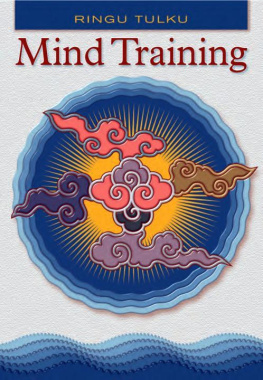
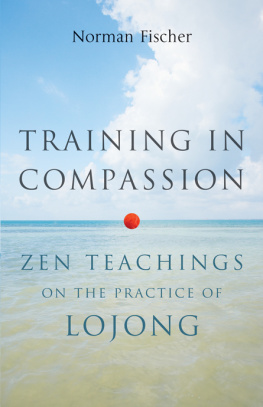
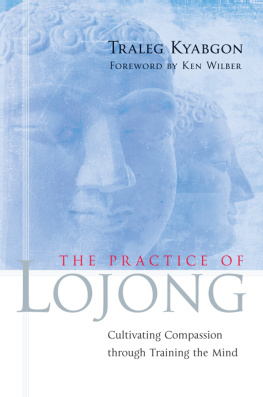

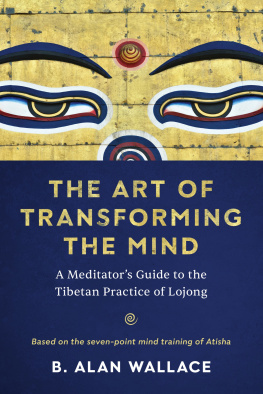


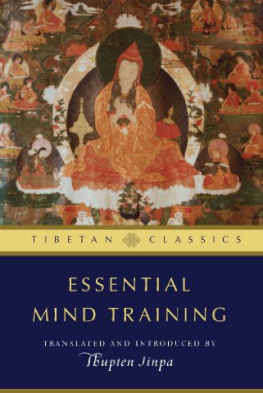

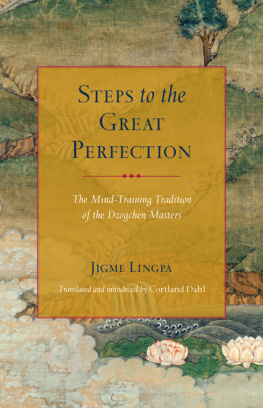










 HAT ARE the reasons for following any spiritual path? Perhaps we are searching for a greater purpose and a sense of meaning in our lives. We need to find an inner and
HAT ARE the reasons for following any spiritual path? Perhaps we are searching for a greater purpose and a sense of meaning in our lives. We need to find an inner and
 HE WORD "happiness" seems to have many different meanings. Opinions about it change from place to place and person to person. For some of us happiness may be wealth, for others it could be good health or success. In countries all around the world, there are people who are happy simply to be safe from violence and attack. For those of us who are fortunate to have the basic necessities of life and security perhaps happiness is having no emotional problems, but how do we solve all our problems?
HE WORD "happiness" seems to have many different meanings. Opinions about it change from place to place and person to person. For some of us happiness may be wealth, for others it could be good health or success. In countries all around the world, there are people who are happy simply to be safe from violence and attack. For those of us who are fortunate to have the basic necessities of life and security perhaps happiness is having no emotional problems, but how do we solve all our problems?